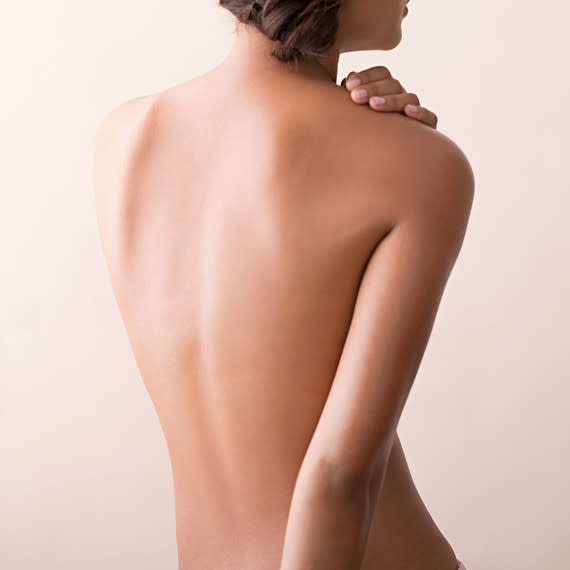Why You Really Have Dry Skin

You’d be surprised. Beyond the usual causes of tight, itchy skin -- low humidity outside, cranked-up heat inside, and long, steamy showers -- there are other, unexpected factors that rob you of moisture during the winter. Fortunately, we’ve found smart strategies and soothing solutions to counter them all.
Hard Water & Detergents
If it’s not the heat, it could be water that’s zapping your skin. “Minerals in hard water, like calcium and magnesium, can disrupt skin’s pH balance. It also won’t rinse away body wash as readily, leaving residue behind,” says NYC dermatologist Ellen Marmur. A shower filter can help, as will a lotion with humectants (to attract water) and emollients (to seal it in). Chapped hands can result from the oil-stripping sodium lauryl sulfate in many dishwashing liquids, too. “Keep hand cream right at the kitchen sink,” says Evonne Winston, a dermatologist in Milwaukee.
RELATED: 8 Products That Help Prevent Dry Skin
Medications
“When I see a patient with cracked lips or inflamed, parched skin, I consider diabetes, an underactive thyroid, psoriasis, or eczema,” says Marmur. “I also ask about medications, since many—like antidepressants, blood-pressure drugs, antihistamines, and decongestants—exacerbate dryness.” Accutane and topical tretinoin (both vitamin A derivatives) are known dehydrators, too. If moisturizer isn’t helping, “speak to your doctor about lowering your dosage, or even taking a short drug holiday to allow skin lipids to replenish,” she says.
Beverages
Coffee, tea, soda, and alcohol are all diuretics that dehydrate. In response, our body wisely redirects what H20 content remains toward vital organs like the heart and brain, Marmur explains. “Drinking more water may help, but it won’t impact the skin directly.” That needs to happen topically, with humectants, such as aloe or glycerin, and emollients that bind water to skin’s surface, like squalene—found in olive oil. (Try Tatcha Soothing Silk Body Butter; $48, tatcha.com.)
Anti-Aging Products
“People tend to go overboard cocktailing line-softening products like retinol, glycolic acid, and vitamin C, and this leads to irritation,” says Washington, D.C., dermatologist Noëlle Sherber. “Over-exfoliating with a scrub or an acid-based product will also inflame dry, vulnerable skin.” Her advice: Switch to a milder fruit enzyme–based exfoliator (like Elemis Papaya Enzyme Peel; $45, elemis.com). Then use a single anti-ager two or three times a week, max.
RELATED: More Reasons Your Skin Might Be Dry
Stress & Lack of Sleep
“Over time, chronic tension and inadequate rest can increase water loss and an inability for the skin’s barrier to retain hydration,” says Sherber. Not surprisingly, these factors also exacerbate conditions like eczema and rosacea. More shut-eye will calm things down, but the air quality in your bedroom matters, too. “If you sleep six to eight hours in dry heated air, you’ll wake up with desiccated skin,” stresses Winston, who suggests using a humidifier.
Hormonal Changes
In your 40s, your skin acts like it’s going into early retirement. “Production of everything, including skin-lubricating oils and plumping hyaluronic acid, starts to slow,” says Sherber. Then there’s the M-word: During menopause, levels of estrogen (which stimulates lipid production) decline, and skin can feel as arid as the Sahara. Rebalance with a lotion containing ceramides, oils, and humectants, like hyaluronic acid or glycerin. A good bet: IT Cosmetics Confidence in a Cream ($48, itcosmetics.com).
Dry Eyes, at a Glance
Many of the factors that cause dry skin also increase tear evaporation. But so does flying in a plane or staring at a screen, says Manhattan optometrist Viola Kanevsky. Take breaks to rest your eyes, then blink to spread tears around. If necessary, relubricate with preservative-free artificial tears, Kanevsky suggests.
